
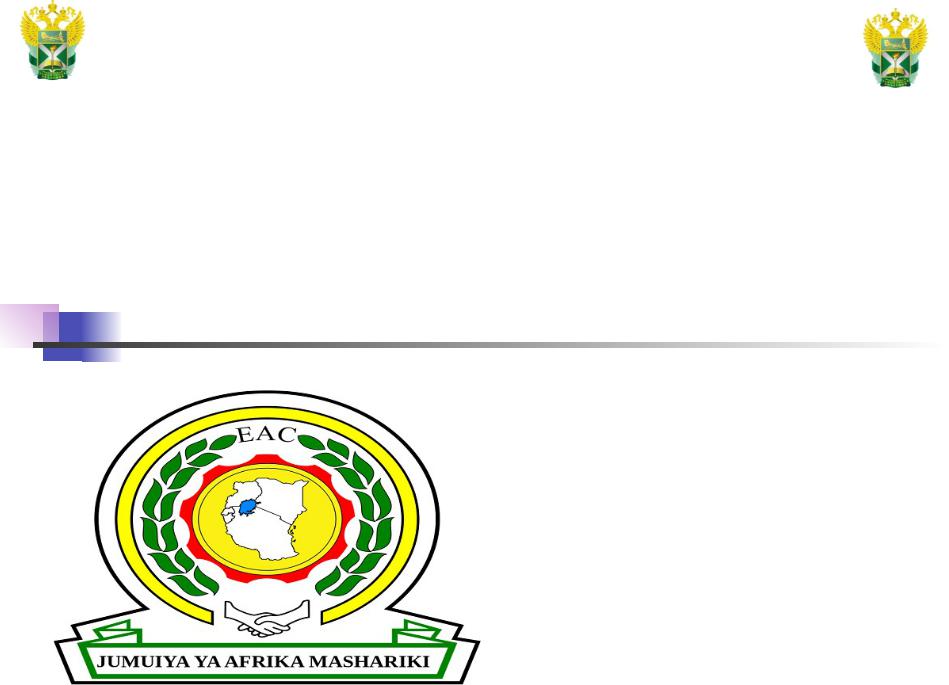
Иностранный язык
 East African Community
East African Community
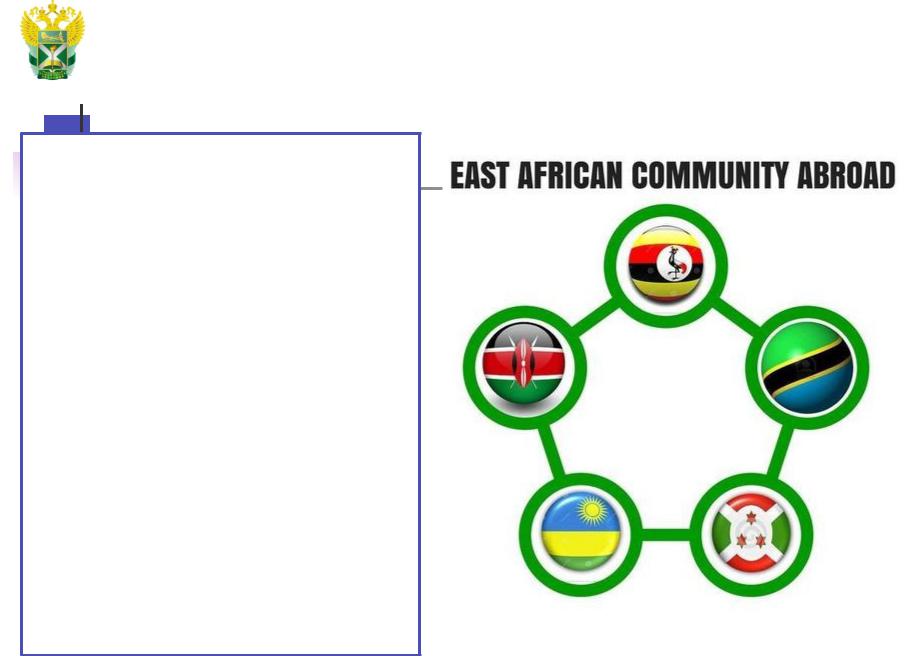
EAC
The  East African Community (EAC) is a regional intergovernmental organisation of 6 Partner
East African Community (EAC) is a regional intergovernmental organisation of 6 Partner
States:
the Republics of Burundi,
Kenya,
Rwanda,
South Sudan,
the United Republic of Tanzania, and
the Republic of Uganda,
with its headquarters in Arusha, Tanzania.
2
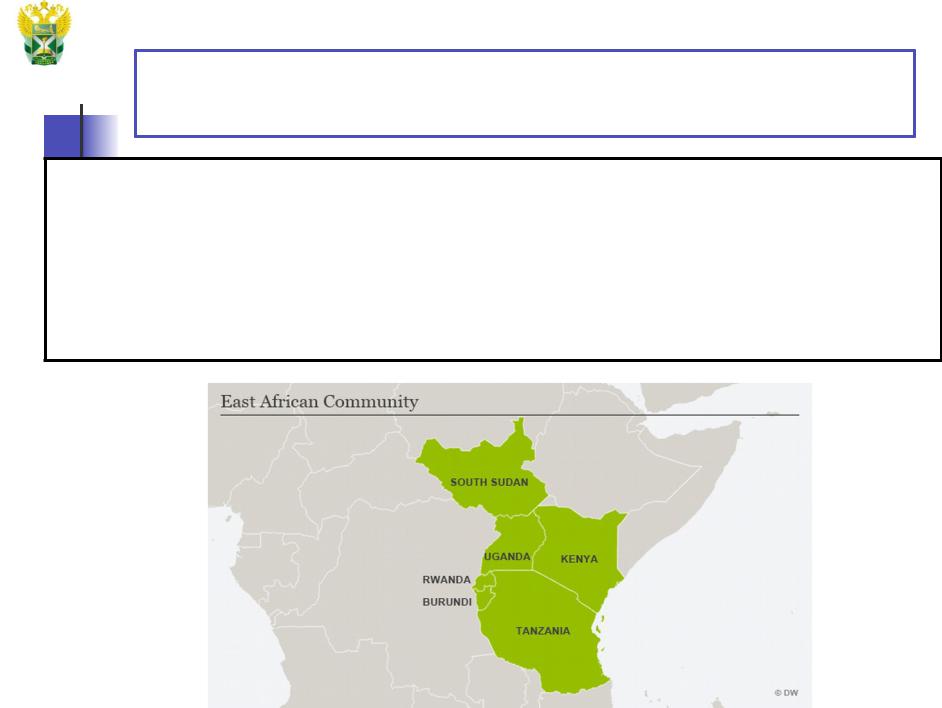
The EAC is home to 150 million citizens, of which 22% is urban population.
 With a land area of 1.82 million square kilometres and a combined Gross Domestic Product of US$ 146 billion (EAC Statistics for 2016), its realisation bears great strategic and geopolitical significance and prospects for the renewed and reinvigorated EAC.
With a land area of 1.82 million square kilometres and a combined Gross Domestic Product of US$ 146 billion (EAC Statistics for 2016), its realisation bears great strategic and geopolitical significance and prospects for the renewed and reinvigorated EAC.
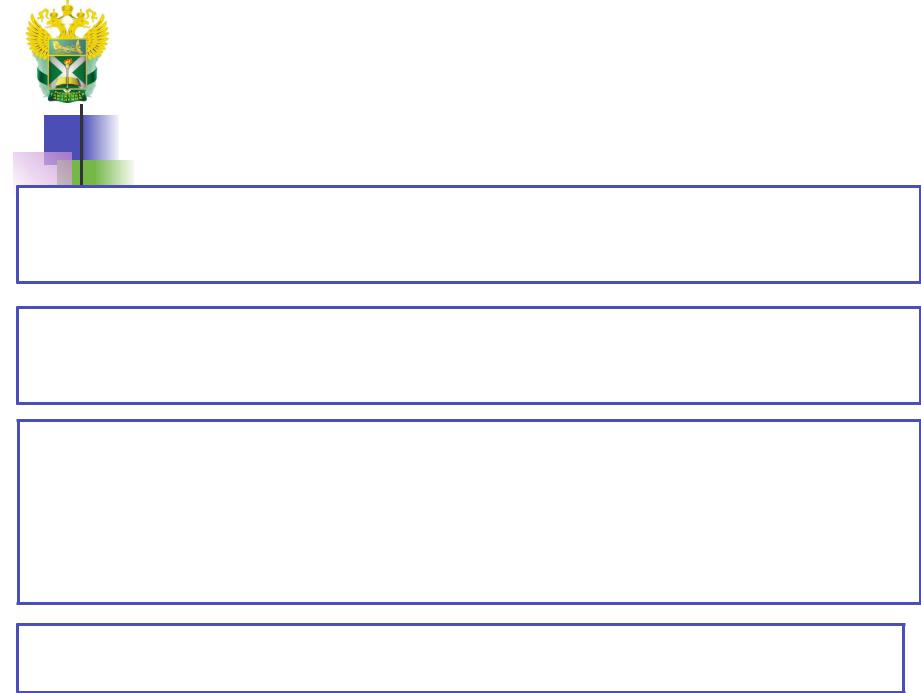
Key EAC Dates
30 November 1993:
Signing of Agreement for the Establishment of the Permanent Tripartite Commission for East African Co-operation
2 March 2004: EAC Summit signs Protocol for Establishment of the EAC Customs Union.
1 January 2005: EAC Customs Union becomes operational.
20 November 2009:
Protocol for the Establishment of the EAC Common Market signed
30 November 2013:
Protocol for the Establishment of the EAC Monetary Union signed
15 April 2016
The Republic of South Sudan accedes to EAC Treaty
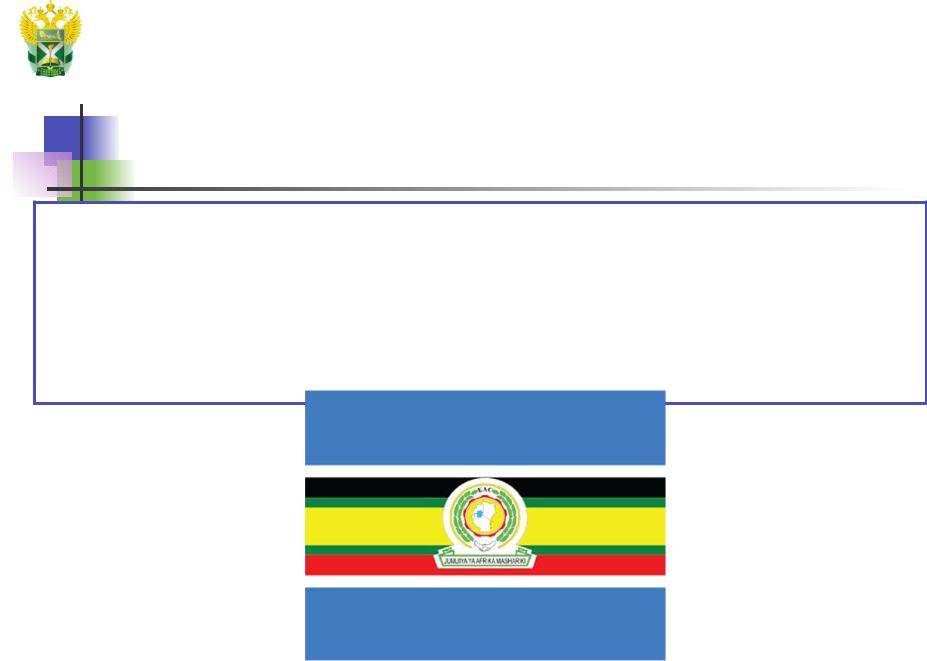
EAC Organs
The main Organs of the EAC are the Summit, the Council of Ministers, the Coordinating Committee, the Sectoral Committees, the East African Court of Justice, the East African Legislative Assembly and the Secretariat.
The Community Flag |
5 |

Objectives of the Customs Union
The objectives of the EAC Customs Union are:
To further liberalise intra-regional trade in goods on the basis of mutually beneficial trade arrangements among Partner States;
To promote efficiency in production within the Community;
To enhance domestic, cross-border and foreign investment in the Community; and
To promote economic development and diversification in industrialisation in the Community.
6

Scope of Co-operation
Co-operation will apply to any activity undertaken by the EAC
Partner States in the field of Customs Management, and includes the following:
Customs administration;
Matters concerning trade liberalisation;
Trade related aspects including the simplification and harmonisation of trade documentation, customs regulations and procedures;
Trade remedies;
National and joint institutional arrangements;
Training facilities and programmes on customs and trade;
Production and exchange of customs and trade statistics and information;
The promotion of exports.
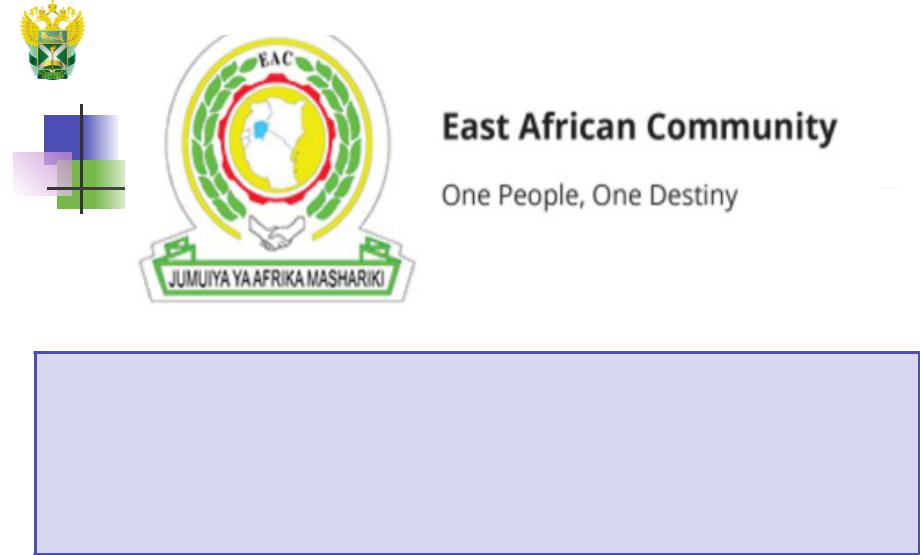
At the moment, the regional integration process is in full swing as reflected by the encouraging progress of the East African Customs Union, the establishment of the Common Market in 2010 and the implementation of the East African Monetary Union Protocol.
8

Спасибо за внимание.
9
